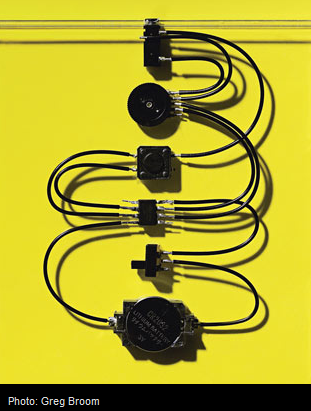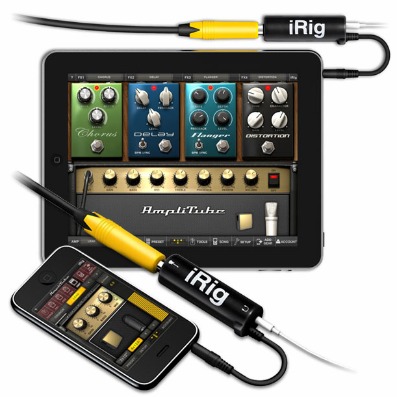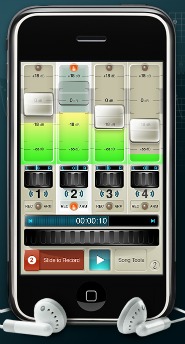Tristan Perich, a New York composer of experimental music, wanted to see how small he could make big philharmonic pieces.
This Wired piece details 1-Bit Symphony, a 40-minute symphonic work on a single, tiny microchip. While technically not 1-bit in size (the work is actually 8 KB), it is an impressively small creation in an age of miniature ubiquity. (You can order 1-Bit Symphony here, which includes a small battery and is shipped in a CD jewel case.)
It’s not the file-size or dimensions that are particularly notable (the iPod Nano, for instance, can probably boast more extraordinary specs), but rather the minimalist nature of the setup. This is a bare-bones recording, and underscores how little one needs these days to make music. It’s an extreme example, but hopefully it will inspire musicians to balk at costly setups and begin working within limitations they can afford, master, and use easily.
The Amplitube iRig is a perfect example of one way for musicians to exploit current technology. The iRig is simply an interface: You plug your guitar into one end, your iPhone/iPad into the other, and your headphones into a third input. Just download the Amplitube app, load up a few effects and pedals, and you have a full-fledged recording setup.
Add to this the Sonoma Four Track iPhone app, and you have a multi-track mini studio on you at all times
The value in these tools is in their accessibility and ease-of-use, but are also valuable for the creative process. The flood of gadgets available to a musician (pedals, amps, mixers, microphones, cables, compressors…) can obscure the fact that the name of the game is music. You don’t need very much to create music, and now you don’t need much to record it either. The only real sacrifice with using these “iTools” is fidelity, but this is a non-issue when recording demos, ideas, piecing together songs, or practicing.
And the fact is, if you can’t create great music using these tools then you aren’t ready for a full-fledged studio setup anyway. The power of a recording lies in the heart and soul of the musician, lyrical craft, and an inspired placement of notes, not the sample rate of the resulting file.






 Posted by Mark
Posted by Mark 








